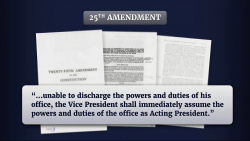An independent Western Sahara run by the Polisario Front would likely turn into another source of regional insecurity.
You would be forgiven for forgetting Western Sahara, a territory on the west coast of North Africa with a population of 600,000. However, it’s a place worth remembering and one undergoing a transition that will have an impact far beyond its borders.
Western Sahara was once a Spanish colony, but it was less decolonized than abandoned and then annexed by Morocco in 1975. After that, plans for referenda on self-determination never quite came to fruition.
Whatever your position on national independence in general, in this instance, Morocco is all that is standing in the way of Western Sahara becoming home to a jihadi government.
More and more countries are coming to agree with this stance. The United Kingdom recently recognized Moroccan sovereignty over Western Sahara, joining the United States, France, and Israel. Even Syria has grown tired of the Polisario Front, the main separatist movement, expelling it from the country just days ago.
Polisario’s main backers are Algeria and Iran, with Syria’s new government now backing Morocco’s claim to the largely desert territory.
With friends like that, it’s clear that the Polisario Front shouldn’t be given an entire nation as a base of operations.
A report by Germany’s Die Welt revealed direct ties between the group and Iran-backed Hezbollah, including intercepted calls between Mustafa Muhammad Lemine Al-Kitab—Polisario’s Syria liaison—and a Hezbollah agent.
In these conversations, Al-Kitab expresses ideological solidarity with Iran’s axis of resistance, praising the October 7 Hamas attack on Israel and envisioning a unified front that includes Gaza, the Golan Heights, Lebanon’s south, and even Western Sahara. He explicitly supports the idea of coordinated attacks on Israel involving Hamas, Hezbollah, Algeria, and Iran. While acknowledging Polisario’s limited capabilities, he solicits further assistance from Hezbollah and Iran to attack the Israeli embassy in Morocco.
Moroccan foreign minister Nasser Bourita accused Iran of “arming extremist groups and separatist entities within the Arab region, including the Polisario Front, by supplying them with drones in an effort to “undermine security and stability in the region.” In 2022, a Polisario official said Iran would also supply them with kamikaze drones.
Once seen as a secular nationalist movement, the Polisario has, in recent years, aligned itself with some of the most radical actors in the region. While Marxist ideology shaped the group with backing from Cuba and Gaddafi’s Libya, that legacy has given way to a far more dangerous reality. Today, the Tindouf refugee camps in southwest Algeria—where more than 170,000 people fled from an earlier conflict with Morocco—are under Polisario control. They have become a breeding ground for jihadist recruitment and a nexus for extremist networks operating across the Sahel.
The group’s ties to extremism are well documented. Adnan Abu al-Walid al-Sahrawi, a former Polisario fighter, went on to lead the Islamic State in the Greater Sahel (ISGS) before being killed by French forces in Mali in 2021. In 2008, the Fath al-Andalus terror cell emerged from the Tindouf camps, followed by the “Khilafah” group in 2009, which pledged allegiance to ISIS. A German intelligence report noted that “ISIS and al-Qaeda operate freely in the Tindouf camps and the broader Sahel-Sahara region.”
It was Polisario that ended a 29-year ceasefire in 2020, and the group has carried out multiple attacks targeting Moroccan civilians since 2021. Polisario also has a long record of recruiting child soldiers. A Geneva-based NGO told the UN Human Rights Council that Polisario systematically blocks children from completing their education, forcing them into military training and combat.
Critics of Morocco’s control over Western Sahara want to roll back US recognition of Moroccan sovereignty, arguing that Washington should return to its 1991 stance, which supported a UN-backed referendum for the Sahrawis to decide who should rule them. It’s an argument that might have resonated in the 1990s, but today, it’s outdated and goes against America’s interests.
The facts on the ground have changed. The Polisario Front is no longer just a separatist movement; it is aligned with America’s adversaries, including Iran and radical Islamist networks. Reversing US policy now would mean undermining a key regional ally—Morocco—at a time when its role in counterterrorism and regional stability has become increasingly critical. For years, Polisario has operated with impunity. That must end.
About the Author: Ahmad Sharawi
Ahmad Sharawi is a research analyst at The Foundation for Defense of Democracies, focusing on Middle East affairs and Iranian Intervention in Arab Affairs.
Image: Sgt. Scott Achtemeier USMC Wikimedia Commons / Public Domain.


















